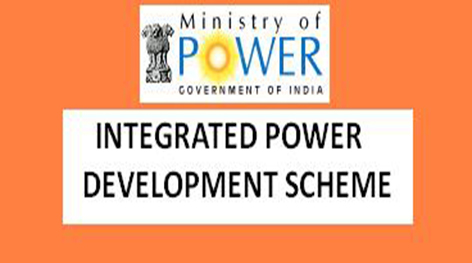What Is Integrated Processing Development Scheme
Integrated Processing Development Scheme or IPDS is a scheme that was implemented by the Government of India during the 12th Five Year Plan under the Ministry of Textile, Indian Government. This scheme is one of the main government schemes that are implemented in recent times.
This scheme is a government-sponsored scheme and it was launched as an initiative to establish around three to five greenfield projects and four to six brownfield projects within Rs. 500 crore. It aims to address the environmental issues that are faced by the textile units in the country under the approval of CCEA (Cabinet Committee on Economic Affairs).

What Are The Objectives Of Integrated Processing Development Scheme (IPDS)
In recent years, the textile processing sector in the country has been facing a lot of challenges which includes water availability, safe treatment and disposal of effluents and solid waste generation. The processing of textiles in India is a very important component of the textile industry value chain.
Following are some of the major objectives of the Integrated Processing Development Scheme:
- To provide support of the government in order to develop a common infrastructure as it will speed up the investments of the private sector in the major processing clusters.
- To make the textile industry globally competitive by setting new processing parks and also adapting to the standards of processing which are environment friendly.
- To support the up-gradation of the existing processing centres and clusters which are specified in the field of water and wastewater management.
- To promote work that is related to research and development in the sector of textiles.
What Is The Implementation of the Integrated Processing Development Scheme (IPDS)?
The Integrated Processing Development Scheme was implemented in order to solve different challenges that are faced by the textile units in the country. These include the non-availability of water for processing and the environmental pollution that is caused by the discharge of effluents by the textile industries.
This scheme also aimed at developing some processing parks which will be having effluent treatment plants and water supply systems. The implementation of the Integrated Processing Development Scheme was done during the 12th Five Year Plam via the formation of Special Purpose Vehicles or SPVs.
SPV or Special Purpose Vehicle is a corporate body that is registered under the Companies Act and it functions according to the guidelines of the Government of India. It is also responsible for obtaining loans from banks as well as licenses that are required for developing processing units in the park.
The Integrated Processing Development Scheme mainly focuses on the three areas mentioned below:
- Wastewater management
- Adequate and timely supply of water
- Safe treatment of harmful effluents before disposal.
Which Agencies Are Involved Under The Integrated Processing Development Scheme?
Apart from SPVs or Special Purpose Vehicles, there are some other agencies that are also involved in the implementation of the Integrated Processing Development Scheme and these agencies are mentioned below:
- PMC or Project Management Consultant- It is an advisory panel that is appointed by the Ministry of Textiles. It provides assistance for monitoring the progress of the project, utilising funds and assessing proposals.
- PSC or Project Scrutiny Committee- It is headed by the Joint Secretary of the Ministry of Textiles and it appraises the proposals for feasibility after they are submitted to PMC.
- PAC or Project Approval Committee- It is headed by the Secretary to the Ministry of Textiles and offers administrative support to the scheme.
- PMA or Project Management Agency- It is appointed by the Special Purpose Vehicles (SPVs) after the approval of PAC and it is also responsible for the preparation of a plan of the project.
- O&M or Operation and Maintenance Agency- It is responsible for the professional maintenance of the assets of SPV for a time period of at least 15 years.
The State Government also had a major role to play in the process of implementation. It also provides assistance with approvals, suitable land, labour and any other schemes.
Integrated Processing Development Scheme FAQs
✅ What is the objective of the Integrated Processing Development Scheme?
The main objective of the scheme is to enable the sector of textile processing to meet environmental standards.
✅ Who are the beneficiaries of the Integrated Processing Development Scheme?
The beneficiaries of the scheme are- Labourers, Rural artisans, Marginal Farmers, Scheduled castes and Scheduled Tribes.
✅ What is the full form of IPDS?
The full form of IPDS is the Integrated Processing Development Scheme
